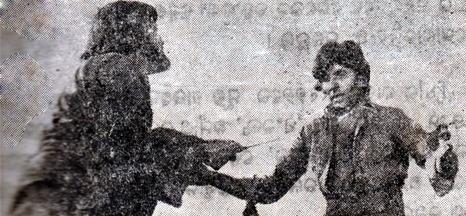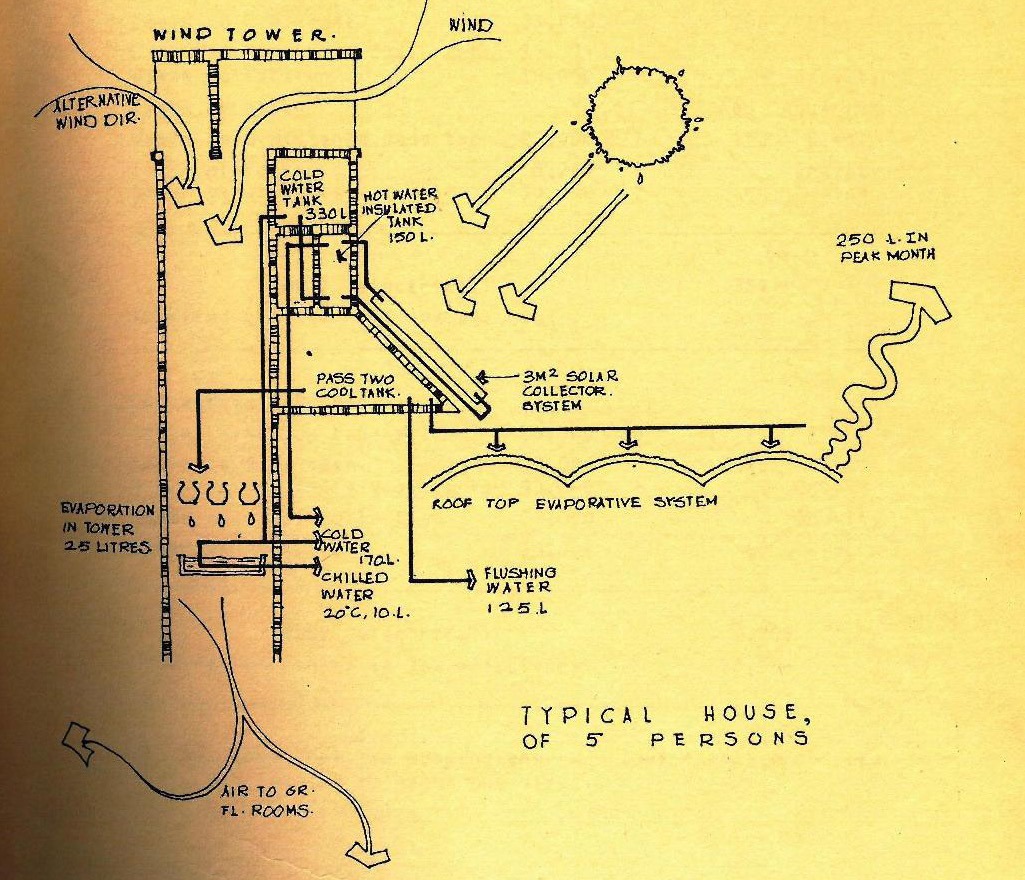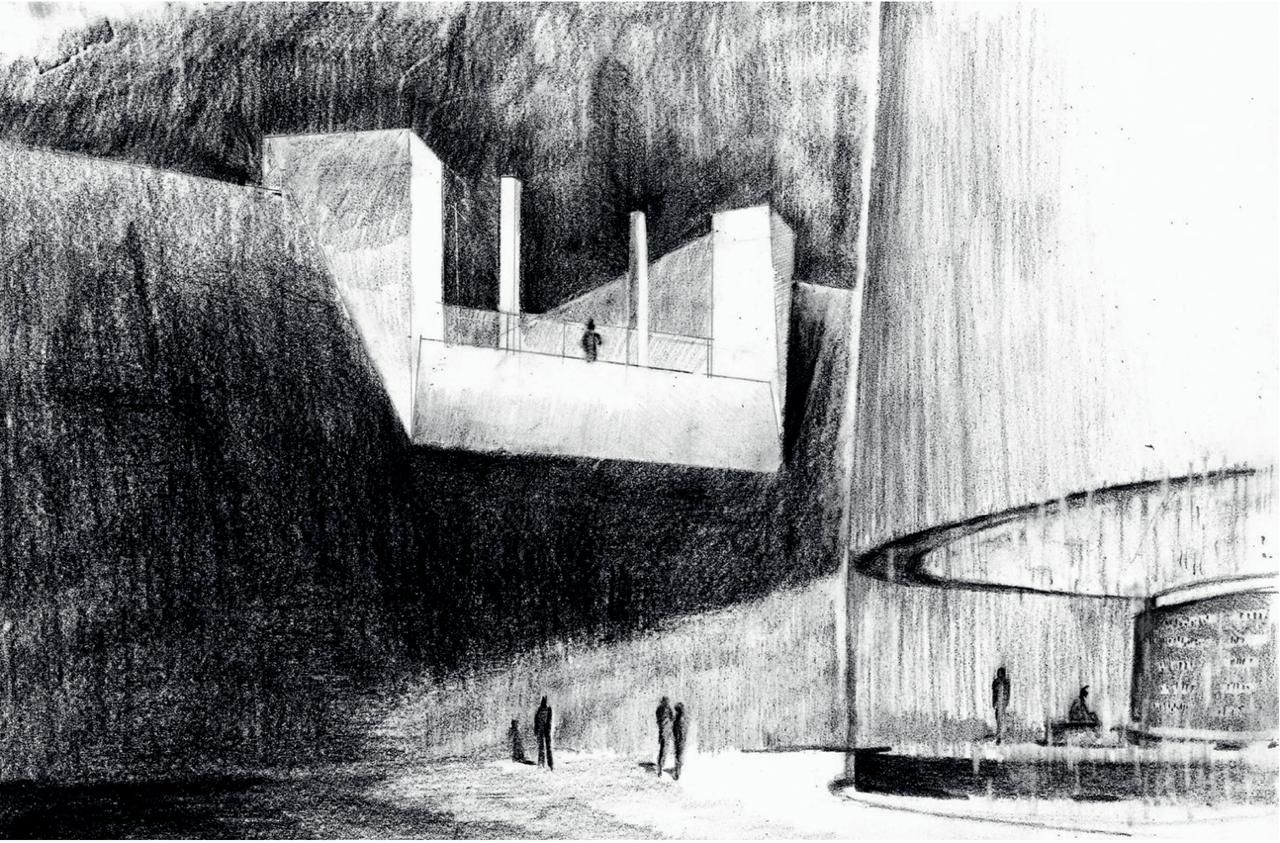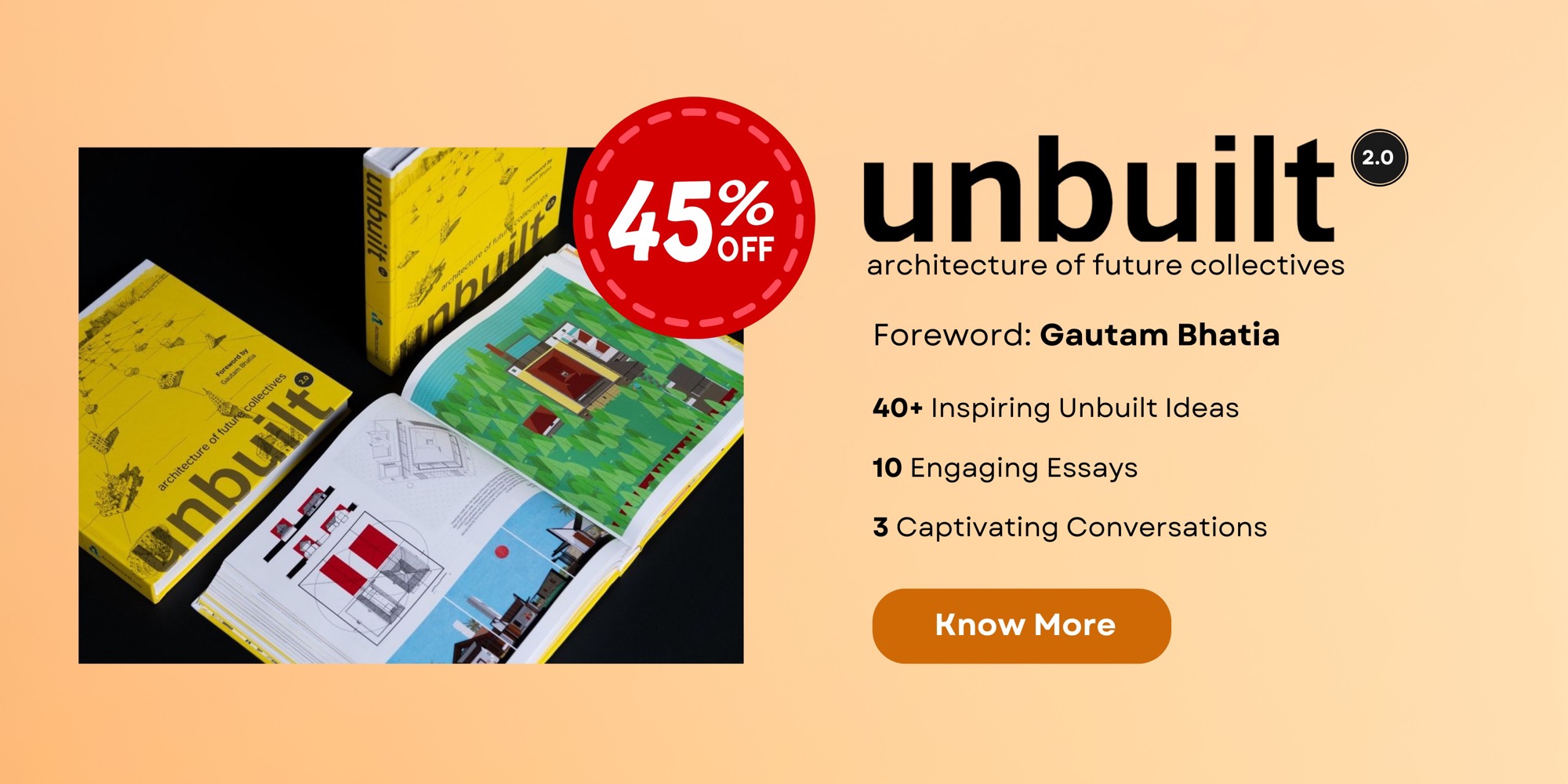Enter Stage, Left: Ambrish Arora, fellow designer and friend, with whom many conversations over the years have led to questioning the existential relevance of our being and work, of theory and practice, and the process that leads us forth. As we sit over a cuppa, he brings weight to these thoughts, reflecting on his spiritual journey and an unremitting quest for ‘letting go of the ego’.
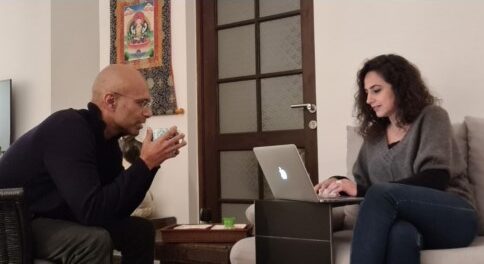
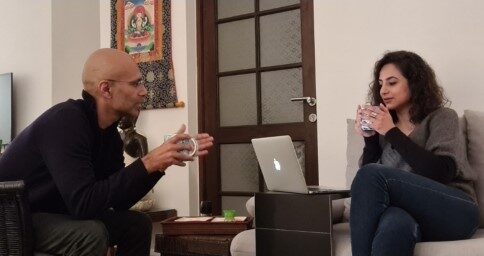
MG: A sceptic would argue that if the quest is unattainable, there isn’t much point in breaking your back over it.
AA: My spiritual practice is pivoted on an inward journey and bridging the outer world with my inner. I believe that any outward expression can only be as ‘pure’ as far as it is devoid of me (read, my ego, identity, sense of separateness, and what makes me ‘me’—disengagement the universe, nature, context and needs). Of what I do every day, my spiritual practice is a small step of slowly dissolving my biases, diversions, and other filters that inadvertently colour my perception and hence my opinion.
MG: Is this not contrary to the common perception of an artist’s (or in this case, a designer’s) identity, derived from their unique perceptions that make them distinct from others?
AA: I guess that would vary from practitioner to practitioner. The framework of an Architect as an Artist/Author would be established by the assertion of his/her distinguished points of views, filters and perspectives. The frame I choose to view my role through is that of a facilitator—my practice is an inquiry to reach a point where it becomes unimportant who the author of the work is.
MG: With a perpetual barrage of information today, how do you dissociate from the bedlam of ‘inspiration’ and ‘aspiration’ to preserve your tranquillity?
AA: For one, I try not to ‘look’ at too much information buzzing around me. I am fairly disconnected from social media, which keeps me insulated from much of the ‘noise’ and also gives me a self-referential framework that guides my design process. I try and deepen this through my spiritual practice. I believe that to synthesize meaningful solutions we need to get in touch with the interconnectedness of everything as an experience and not merely as intellectual understanding.
MG: And how does one achieve that?
AA: By viewing the act of building as an act of surrender rather than one of control. This requires looking beyond the mastery of the craft as a tool to control the outcome and instead developing the practice of deep listening—paying heed to all the parameters that we call context and allowing those to shape the building. The practice of reflection and silence becomes a critical part of the journey. The more the response comes from a place of silence, I feel the truer it is to the context.
MG: How much of that are you able to bring to your practice?
AA: It differs from moment to moment. It is a deep ambition and something I aspire for.
MG: As architects and designers, who is it that we build for? Are we serving our purpose in building a narrative for ourselves or that of who we represent?
AA: As professionals, this is our conflict—the dichotomy of the ‘business of architecture’, hovering between profession and vocation. These are two different things—is being an architect something that I am trained to do and do well professionally or do I believe it is my calling that I give my all to? I am not saying that one is superior to the other. It is simply a different lens.
MG: Do you think you have been successful in circumventing what today has become normative?
AA: I think the question of circumventing something only comes up if you are evaluating your success compared to others. Each of us has our respective journey and I believe that to transform my practice, my business, my work, I need to be willing to question and transform myself continuously.
MG: How does one begin that journey to discover themselves?
AA: Through self-enquiry, which is the willingness to question yourself and your beliefs, your actions-moment to moment, day after day—be constantly fallible.
MG: Do you think having intent and being willing to accept change is perhaps most critical, as opposed to leaving things to their own devices or chancing upon them?
AA: Not just that. We also need to question—am I willing to repeatedly accept what I hold as Truth as just a point of view? Am I willing to cast it aside and embrace something entirely different as mine?
MG: Step one would be to accept and acknowledge where you are, and then begin to take responsibility for it.
AA: If we were to ask anyone why they are where they are, the response would be a host of reasons, “because I was born to these parents, my education was this or that/ largely amounting to/ I went through a certain set of experiences that shaped me…” This version of reality is limiting as it dilutes the infinite possibilities that you continue to hold in the present and future, no matter what your past.
MG: These are circumstantial matters though; they only establish a context to where they are, but does it answer the why?
AA: I am not here because of what happened to me. There is no ‘circumstance’—we choose who we are in the face of that circumstance—and that is our choice, this is what we are doing. The circumstance is not shaping us, the choice we make at that moment is what shapes us. I am, thus, a creature of my own making.
MG: Which would indicate, rather directly, that you have control over your life, and I am in control of mine. But are we?
AA: What comes of my action is not in my control. I do not view it as control but as surrender.
MG: What do you anticipate would be different if you achieve the aspiration to live like that?
AA: That would never happen.
MG: Why not?
AA: That is nirvana, transcendence… that is when you disappear. When you reach such a high level of self-awareness, the ‘self’ as separate from others ceases to exist.
There is perhaps a distinct moment of transcendence just then, for the room falls silent, and we both become highly aware of the moment. Time does not stand still, but one allows themself to observe and feel the passing present.
MG: What would that state of consciousness do to our practice as builders?
AA: If we are to build meaningfully, any form of building, then our practice would shape us, and that is what would ultimately shape the future. The choices we make shape the future of building and what is being built.
MG: But it merits a mention that this would be universally applicable, not only to the practice or practitioners of building.
AA: Of course, this relates to every human being on the planet—each one of us needs to be on a trajectory of conscious evolution (separate from circumstantial evolution), and in this journey our process of self-discovery is paramount. It is only when we discover an awakening within us that architecture begins to awaken through us. To that degree, this is the world of the unbuilt—what underlies the act of building.
MG: What is that? Are we saying that we need to step out of the built realm to build?
AA: When architects design buildings, they are victims of their volitions, what they are driven by, how their day has passed, the tasks they need to complete, the salaries they need to pay and many others. Their volitions drive everything, including the context that establishes the purity of their building.
MG: Again, that holds for anyone, in any trade. A surgeon might find it easier to overcome this given his/her task is driven by a singular agenda of a successful surgery, which is more quantifiable than, let’s say, an architect’s…
AA: Precisely, in the creative field boundaries are a little more fluid, and often created spontaneously. But in the end, in all vocations, you will deliver at your highest potential if you can tune in to what is present—when the ‘I’ disappears, you are in the flow.
MG: Having said that, I do believe that we are a sum of our experiences and aspirations.
AA: …and fears!
MG: Unfortunately, we are often unable to overcome those.
AA: But that is the condition of humanity. This is why each human needs to consciously nurture his/her practices of reflection and silence. We know we should each day, but we seldom do.
MG: I could easily be charged with that offence. I know I should, I even promise myself every day that I will, but more often than not, I don’t. I fail repeatedly, and miserably. But tell me, is it really about what we should do? Or do we give credit to what we want to do? And how about what feels right?
AA: Step one is acknowledgement, which most of us don’t do. Instead, we end up pre-empting everything with an ‘if’ or a ‘but’. I need to acknowledge that my buildings are a result of my choices and not a result of my circumstances.
MG: Ok, acknowledged. Now?
AA: Why did you make that choice?
MG: To answer that, I would have to go back in time to every intersection or crossroad or moment when I made the choices, and ask myself why… Also, can we disregard the weight of the hand that we are dealt? Or the choices that others around us make?
AA: Even if you return to all those moments when you made a choice, you will find reasons to justify them. The instant you have a reason, you no longer believe you made a choice. That is the opposite of choice. It robs you of your power to choose freely in each moment. Even with respect to people around you—you choose to be affected by their opinions.
MG: What if you could choose differently? Would you ever go back in time and reevaluate your choices?
AA: That is not a choice, that is a hypothetical situation. I have to admit, I spend more time than I perhaps should cogitating on the past or fantasizing about the future. While I am acutely aware of this, I grapple with being in the now.
MG: Are you satisfied with where you are right now?
AA: I am thrilled, I could not have wished for much else.
MG: What have been the most significant turning points in your life?
AA: Now that you ask my most life-altering choices that changed the course of what I thought was possible or what I could do with my life, were times when I leapt off the edge without knowing what lay ahead—with no plan, hinged only on the belief that life would carry me. And it is at these points that people told me I was crazy and that I would not be able to pull through. These include the times when I dropped out of college, when I started Studio Lotus without a degree or a plan, and a few others.
MG: That was many years ago. Since then?
AA: Nothing as radical. Perhaps over the years, the choices have been more subtle, more personal…acts of letting go and surrendering.
MG: Why have there been no more radical choices? Did nothing demand such efforts of you, or did you just become comfortable?
AA: Comfortable and fearful. I have not done anything even remotely so drastic, but there have been considerable steps that have left me disconcerted.
MG: Such as…?
AA: Stepping back from actively running Studio Lotus was not easy. I began to question the identity it formed around me for so many years. Voluntarily letting go and putting myself in an uncomfortable space continues to prey on my insecurities.
MG: Was this decision imperative for you or the practice?
AA: Many people tell me that I tend to make the harder choice; I make things tough for myself. In relative terms, perhaps, but in absolute terms, I wish I had the strength to but don’t.
MG: Do you ever look back and wish that you had taken the easier way out?
AA: Not at all, on the contrary…
MG: So, you feel that you did take the easy way out?
AA: In the last few years, relatively speaking, yes. I feel like I have not been as hard on myself and my immediate circle, ‘or’ confronted myself as much as I could.
MG: Why do we glorify the harder choice? Why is it a virtue to constantly push oneself beyond comfort? Why do we so vehemently celebrate the idea of blood, sweat and tears? Why would you want to take the rocky road when you have an easier option before you?
AA: I need to ask myself whether I am making the easy choice or the truer one, which may not necessarily make the work harder, but might put me in a space of the unknown. I would most likely choose to act in the face of fear built on insecurity because the easier option is not true to who I am.
MG: Is that always the case?
AA: Almost always…okay, maybe always…
It also has to do with the familiar and unfamiliar. The richness and diversity of experiences in my personal and professional life have been most rewarding. And they are a derivative of the choices I made. They probably were not always what the world perceives as the ‘right’ or ‘correct’ choice, but these were my choices and I stand by them.
MG: Any regrets?
AA: No.
MG: If I gave you a do-over, wherein you could start your journey again from scratch and relive it to the point where you are at right now, would you change anything? Would you make different choices?
AA: I don’t know what choices I would make, but there are no choices I have made that I would undo.
MG: Are you not curious in the least of what a different set of choices would lead you to?
AA: (smiling) No. I do not give myself that luxury of fantasy.
MG: You are probably among the fortunate few.
AA: That is also a choice I make.
MG: Of course. There are choices that we make, but sometimes we live to regret them. Do I regret some of the choices I have made? Yes. Have I come to terms with them? I have. Do I know there is nothing I can do about it? Sure. But if I was given a chance to do things over again, would I choose differently? Definitely.
AA: I wouldn’t want to waste energy on ‘what-if’ questions about the past. I would rather conserve it to address the ‘what-ifs’ of today and tomorrow.
MG: Does that mean that you are not being true to yourself when saying that you do not have regrets? You could have regrets, but perhaps you just do not allow yourself to think about them.
AA: That is one perspective… but I feel very complete. If I take a pickaxe and start picking, I will create a wound, even if there wasn’t one earlier. By that logic, why would I dig up the ‘what-ifs’ of the past?
MG: Do you ever just wonder about the past, even if to only humour yourself?
AA: The past comprises of memories, and memories are non-linear, melding the most trivial and critical all into one. I do indulge in them for they are what makes one enjoy the vagaries of life—without memories, there would be no point of reference.
MG: Do you think about the future?
AA: I try not to.
MG: You don’t plan ahead?
AA: I plan incessantly and build multiple ‘what-if’ scenarios; but I try not to get attached to any of them. I know, it’s an oxymoron!
MG: Do you think the past and future are indulgences?
AA: Yes. The only thing that counts is how present we are to what is in front of us.
I guess that is the regret I have sometimes—I have not been as present to every moment before me, giving in to my fears. This may not be a regret, but I wish for myself that going forward I am less fearful.
MG: Fearful of what? An outcome?
AA: Trivial things that rankle me—fearful of doing something stupid or making a fool of myself—and that fear then stopping me from doing something.
MG: Does being in the present mean disconnecting from the past or future? If someone mentions the past, are you not allowed to reflect or feel nostalgic? Or in reference to the future, hopeful?
AA: Right now, as we speak, the question is how present am I to you? On a scale of 10, maybe 5. That is because this conversation has taken me into a stream of thought, which is in my headspace, and I am not as present as I can be.
MG: But is that wrong? Is it so terrible to let your thoughts meander?
AA: Nothing is right or wrong, it is just a journey of self-discovery.
MG: Do you feel that you are present in the moment a majority of times? I know I struggle.
AA: It largely depends on where you are at that point in your life. It depends on your level of self-awareness at that time—at that moment.
MG: What about being aware of the fact that you are not present in that moment—where would that put someone?
AA: That is the beginning of presence.
MG: But you actually aren’t…
AA: You are; because you can only be aware of the fact that you are not if you really are present. The moment you acknowledge it, that is the power of being present, of completion. For instance, in meditation, it is said that one need not stop thinking, but instead, become aware that the mind is thinking. When you become aware that your mind is thinking, your thoughts cease for that instant. You don’t stop, you just become aware. Becoming aware of your breath is the first tool—tuning into your breath you become aware of your thoughts.
You might not even become aware that you have gone into thought, but when you observe that you are thinking, you are free from being controlled by that thought.
MG: I am very often aware that I am not present in the moment. And it is a little debilitating knowing that and yet feeling incompetent to alter it.
AA: Then you are very aware.
MG: But what is happening, in reality, is that I am losing the moment.
AA: The moment you become aware that you are not present, you become present. And then you are faced with a choice…I had a crazy meeting a few years ago with a newly appointed CEO of a company for which we were doing a project. Mr. CEO walked into the room with a clear agenda to establish his position and the proceedings began with a seemingly prepared attack on me. I could see others in the room become uncomfortable, my rage was starting to rise, and everyone was soon on edge. My initial reaction was defensive, for I thought I knew his intention. But just then, I made a choice—I accepted his words as feedback instead of a rant. And at that very moment, the energy in the room transformed. I know it does not make much sense retrospectively, but it truly was instantaneous, and it was beautiful.
MG: You chose to change your narrative that day…
AA: These are very energetic experiences, especially when you realise that you are the source of energy that is being created. You have a choice. The practice of self-awareness is centred on the ability to direct your energy where you want. The esoteric is manifesting its energy through creation. At that moment you have a choice to decide where you want to direct that energy.
In light of our (continuing) discussion, the idea of directing energy to transform circumstances, delving into self-discovery to be able to facilitate that, and embracing the moment to catalyze the present, forms an open loop. It is not the closure of a definitive circle, but an unending motion that expands and retracts, much like our breath—to renew and regenerate in order to continue to build, unbuild and build again.


